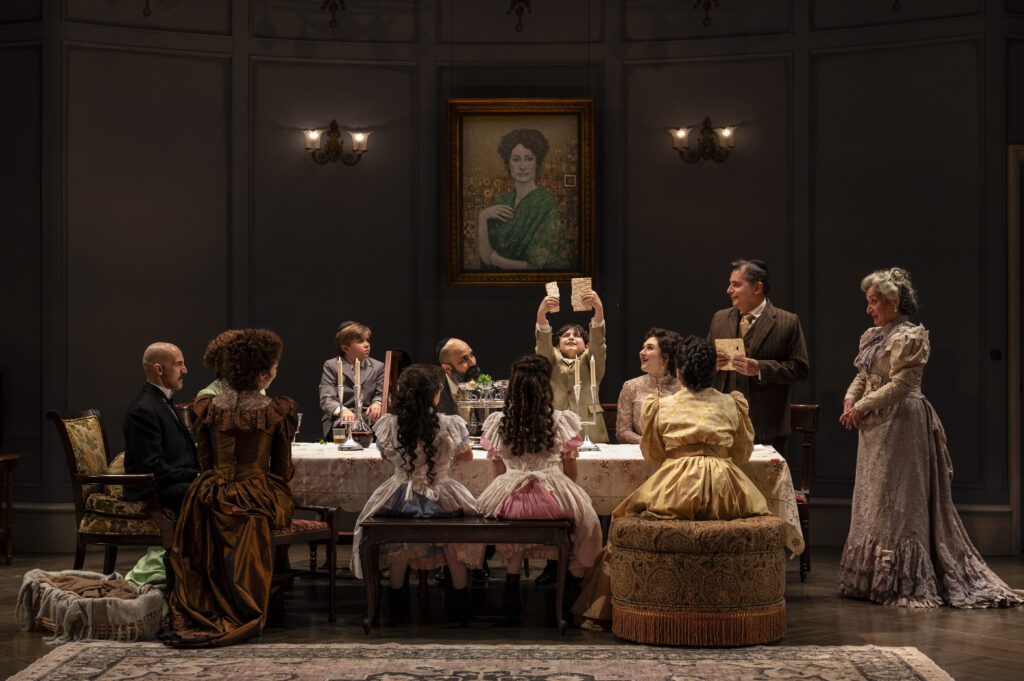‘Leopoldstadt’: An Immersive, Haunting Family Portrait
By • December 11, 2024 0 770

“It’s like a second death, to lose your name in a family album.”
As soon as Grandma Emilia (Phyllis Kay) verbalizes this somber truth in Shakespeare Theatre Company’s production of Tom Stoppard’s “Leopoldstadt,” the play’s chief reason for being becomes readily apparent.
The theatrical equivalent of combing through old photographs and captioning them in permanent marker, “Leopoldstadt” serves as an emphatic reminder that — though we live in a world understandably preoccupied with fears for what the future may hold — we would be fools to overlook the fact that the past is a dangerously vulnerable thing. Without taking active measures to safeguard our memories against the forgetfulness to which we are so disastrously predisposed, we run the risk of their irreversible erasure.
The winner of last year’s Tony Award for Best Play, “Leopoldstadt” follows a Jewish family living in Vienna over the span of 50 years, beginning before the start of World War I and concluding in the chilling wake of the Holocaust. Through a series of five domestic vignettes set in 1899, 1900, 1924, 1938 and 1955, we watch the Merz-Jacobowitz family experience moments of both great joy and devastating loss.
Since some 30 family members appear over the course of the show, keeping track of every filial relationship is admittedly challenging. Yet once you forgo trying to pinpoint exactly how each individual fits into the larger composite, the show’s true main character begins to emerge; rather than prioritizing a single protagonist’s journey, “Leopoldstadt” prioritizes the creation of a comprehensive family portrait.
After taking such delicate care to immerse the viewer into the Merz-Jacobowitz home by transporting us into a bustling living room, brimming with chatter and love, seeing this same room rendered as a sparse, quiet space inhabited by only a few survivors in 1955 is nothing short of haunting. Even without necessarily knowing every Merz-Jacobowitz by name, the silence that lingers in their absence is slicing. In missing them, the audience is simultaneously called upon to mourn the entire generation of European Jews that they represent.
Director Carey Perloff boasts an extensive history of working closely with Stoppard, having collaborated with him to bring eight of his previous works to life, including “Indian Ink” and “The Hard Problem.” Considering that this show is a fiercely intimate, semi-autobiographical recounting of Stoppard’s own family history, Perloff’s involvement in this production is a comforting one. This deeply personal story could not be in safer hands.
Leopoldstadt
Through Dec. 29
Shakespeare Theatre Company
Harman Hall, 610 F St. NW
shakespearetheatre.org
202-547-1122

